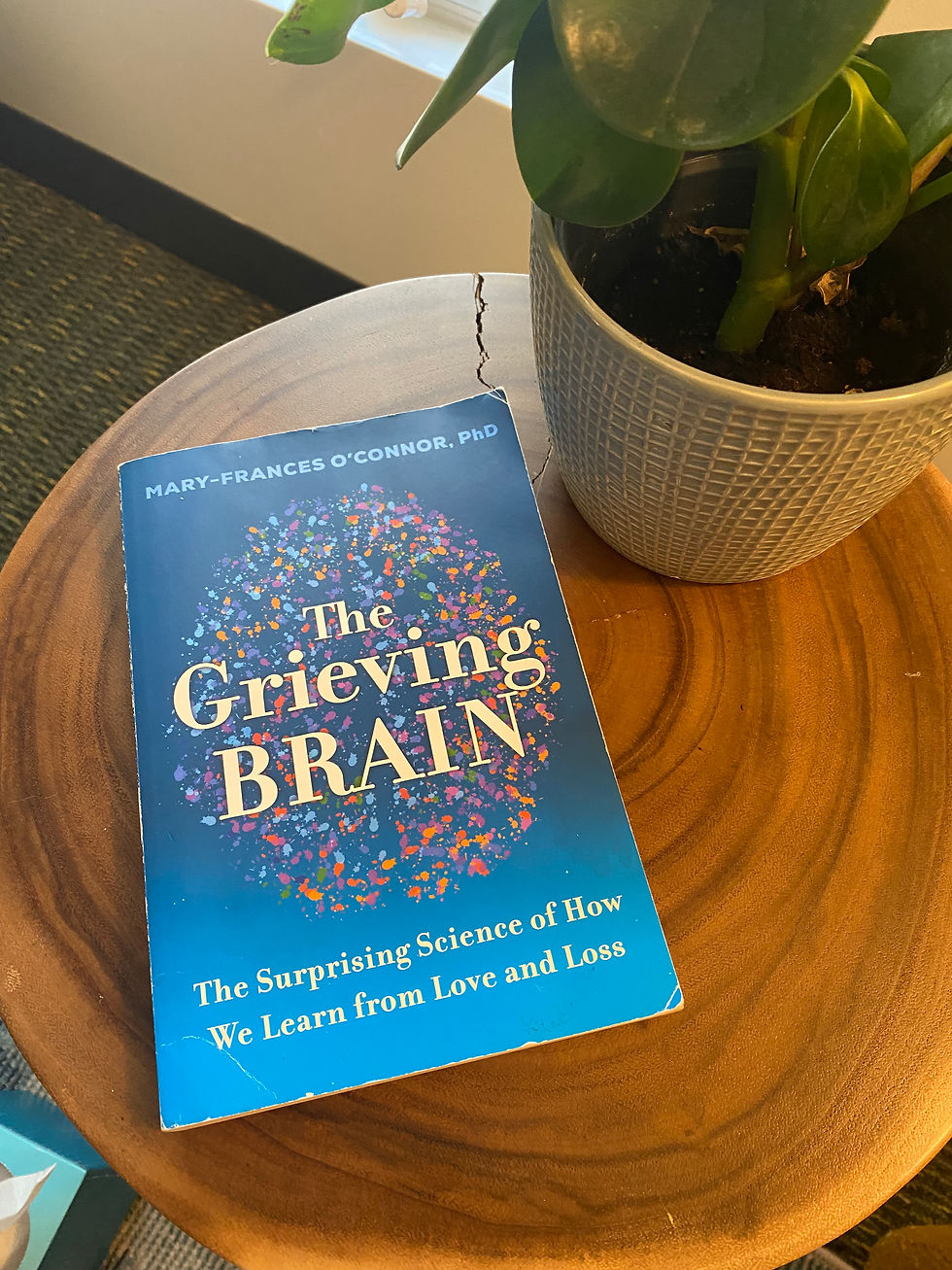What happens to our brain when we grieve?
- Juliana Fabio
- Aug 29
- 2 min read

So much happens to us emotionally and physically when we grieve, an experience that can be profoundly overwhelming and complex. Grief is not merely an emotional response; it encompasses a wide range of feelings that can manifest in various ways, affecting both our mental and physical well-being. But what exactly happens to our brain during this challenging time? Mary Frances O'Connor's insightful book, "The Grieving Brain," offers a comprehensive, science-based approach to understanding the intricate processes that unfold in our brains when we experience grief. Through her research, O'Connor delves into the neurological changes that occur, examining how grief can alter our brain's structure and function. The book explores the concept that grief is not just a temporary emotional state but a transformative experience that can reshape our cognitive processes and emotional regulation. O'Connor discusses how the brain regions responsible for processing emotions, such as the amygdala and the prefrontal cortex, are significantly impacted during periods of mourning. She highlights that these areas may become hyperactive or dysregulated, leading to heightened feelings of sadness, anxiety, and even confusion. Moreover, O'Connor explains the role of neurotransmitters, such as serotonin and dopamine, in our emotional responses to loss. The disruption of these chemicals can contribute to the symptoms often associated with grief, including depression and despair. The author also emphasizes the importance of understanding these brain changes, as it can help individuals navigate their grief journey with more awareness and compassion for themselves. In addition to the emotional and cognitive aspects, "The Grieving Brain" examines how grief can affect our physical health. O'Connor discusses the connection between emotional pain and physical ailments, revealing how prolonged grief can lead to stress-related conditions, impacting our overall health and well-being. By integrating personal anecdotes with scientific research, O'Connor provides a holistic view of grief, encouraging readers to recognize that while the experience can be isolating and overwhelming, it is also a universal human experience that can lead to personal growth and resilience. This book serves as a valuable resource not only for those who are grieving but also for mental health professionals seeking to understand the profound effects of loss on the brain and body. Through her work, O'Connor invites us to explore the depths of our grief, fostering a deeper understanding of this complex emotional landscape.





Comments